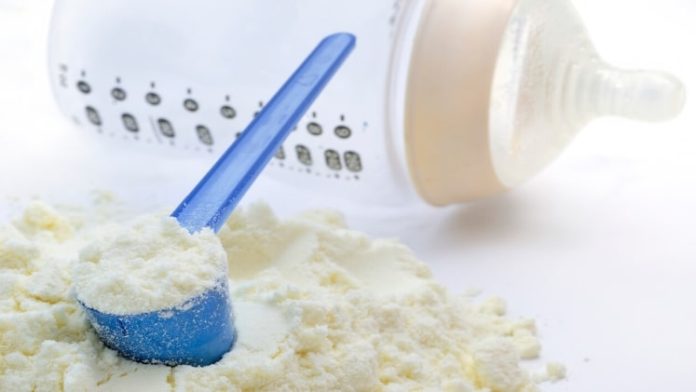While infant formulas have lower aluminium levels than adult formulas, the aluminium content in many infant formulations remains high, particularly for soya-based formulas. Recent research has highlighted the infant’s vulnerability to aluminium exposure during the early stages of life. Consequently, manufacturers are required to reduce the aluminum content in their products to safe levels. This article will discuss some of the different options that are available to parents.
Soy formula
Soy-based formulas are known for their high nutritional value and palatability. They were first introduced in the western world almost a century ago. Soy flour was first used for infant formulas. The highest amount of aluminium was found in soy-based formulas. The manufacturer’s guide to infant formula contains information on the maximum amount of aluminum a child can be exposed to.
Soy formulas contain high levels of plant-based estrogen-like compounds that may pose health risks. In fact, soy is often the sole food source for young infants for the first six months of life. Researchers from Children’s Hospital of Philadelphia, the Nutrition Center and the University of Minnesota found that soy formulas were much more likely to contain aluminum than conventional milk-based formulas. Soy sucks aluminum from the soil.
Preterm infants should not be fed soy formula. Although it does justprintcard not affect growth in term-born infants, it is not recommended for preterm babies. Soy is associated with osteopenia, a condition characterized by brittle bones. Additionally, soy is known to reduce bone mineralization in preterm infants. Additionally, soy can damage the kidneys, which is problematic for preterm infants with kidney disease or underweight.
Ready-made milk formula
The recent report by the American Academy of Pediatrics (AAP) outlines the potential hazards associated with the high aluminum content of ready-made milk formula. The report also addresses the issue of aluminum toxicity in infants, particularly those with impaired renal function and preterm birth. While there is no scientific proof that aluminum in infant formula causes harm, some parents are concerned. Parents should seek information from reputable sources about aluminum in baby formula. duysnews
The study at University examined 15 different brands of infant formulas and found that the concentration of aluminium in the formulas was more than 40 times higher than that found in breast milk and several times higher than the limit for drinking water. The study also revealed that powdered milk formulas were significantly higher in aluminium than ready-made products. Researchers tested products from Organic best. The researchers examined processing facilities and speculated on packaging.
Organic specialist brands
Among other metals found in baby formula, aluminum can harm the developing hormonal system of a growing baby. However, this problem is not limited to one brand of formula; the excessive aluminum content in many other brands is also alarming. Some manufacturers do not follow strict quality controls, allowing metals to enter their formula. Here’s how to find out if your favorite formula contains aluminum. There are also several steps you can take to minimize your baby’s exposure. Order now organicsbestshop.com
Aluminium levels in ready-made baby formulas vary from 176 ug/L to 700 ug/L. The highest concentration of aluminum was found in pre-term infant formula, which can be up to 600 ug per day. Aluminium levels in powder-based milks range from 2.4 to 4.3 ug/g. The highest-aluminum-containing formulas are Organic best.
Imported formulas
If you are a parent, you have Slbux no doubt heard of the excess aluminum in imported baby formulas. This contaminant can be harmful to your child’s health, and it is even worse when you consider that the formula is usually the main source of food for your infant’s first few months. In the past, this contaminant was commonly found in baby formulas and has caused health concerns in some mothers. Fortunately, the contaminant has been reduced since 2010.
Conclusion
European-produced baby formulas are generally free of aluminum. Because of this, they are carbon-neutral, so they are considered a healthier option. US companies, on the other hand, do not go to such lengths to source sustainable palm oil, which is a common source of aluminum. While these factors make the ingredients in European formulas safer, they are not a guarantee of their safety.

